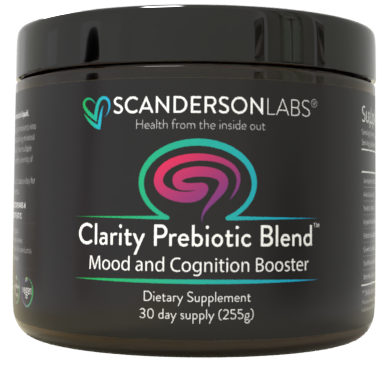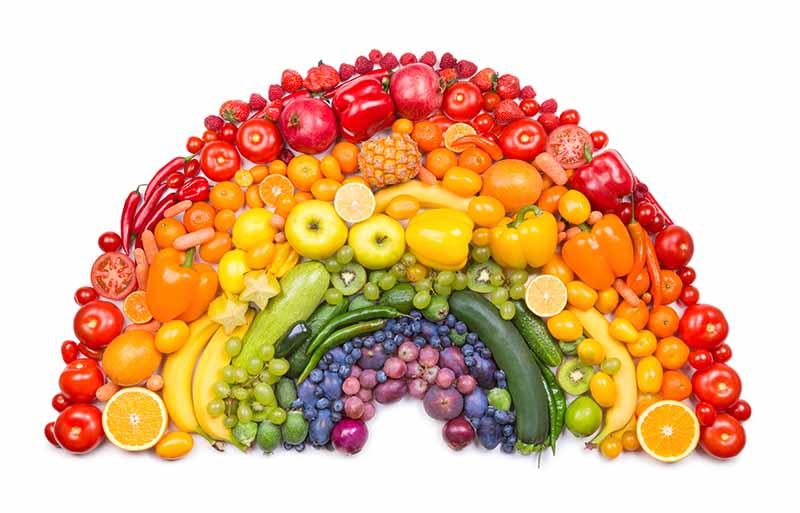Psychobiotics Get Real: A Case Study
Are you in a rainy-day mood even when the sun is shining? You may be depressed. If so, you have a lot of company. The World Health Organization asserts that depression is the number-one cause of disability in the world. This is in spite of all the antidepressants, old and new, available to psychiatry. And yet, all is not gloom. Here is a story of a woman who managed to escape the dark clutches of depression by – of all things – balancing the microbes in her gut.
April (her name has been changed to protect her identity), is a 38-year-old junior high school teacher. Eight years ago, she met a college professor on a skiing trip. On the slopes and huddled around the fireplace in the chalet, they discovered they had a lot in common. They fell in love and soon got married. A year later, April gave birth to a child and two years later, another. The four of them loved nothing more than spending time together.
But behind this idyllic exterior, a problem was brewing. Several months ago, April started to get stomach aches and diarrhea. Over the course of the day, she would take a half-dozen bathroom breaks. It was exhausting. The distraction was enough to drive her to a doctor who prescribed a low dose of Elavil, an antidepressant that is sometimes used off-label to calm down a sensitive gut. In addition, the doctor suggested a high-fiber diet.
But after a month, April realized it wasn’t working and her doctor referred her to a gastroenterology clinic. There she got an ultrasound to rule out any major issues in her intestines, along with a colonoscopy to directly inspect her gut lining. Everything looked fine. Perversely, that’s not always good news: When you have a bad bowel but have no visible signs, it often indicates IBS, which is partially defined by its lack of apparent damage. But as any sufferer will attest, it’s a very real ailment.
April saw a dietitian who recommended extremely low levels of fiber — the opposite of her previous doctor’s advice. These conflicting messages did not inspire confidence. Nevertheless, some patients with IBS have found comfort on a diet like this, which eliminates gas and bloating by drastically reducing the numbers of certain bacteria.
A new perspective
It was here that Dr. Ted Dinan entered the picture. Dinan, a psychiatrist and researcher at University College Cork (UCC), found himself treating more and more people with both depression and gut issues. Collaborating with John Cryan, a neuroscience professor at UCC, Dinan realized that certain probiotics not only helped with the gut, they also improved mood. To describe these special probiotics, Dinan coined the term “psychobiotic.” In some animal studies, these psychobiotic microbes worked as well or better than Prozac to reduce anxiety and depression. Human clinical trials are revealing similarly striking results.
After a consult, Dinan realized that April was not just suffering from IBS, she was also depressed. Over the previous months, she had found herself dragging through the day. She was constantly worried and anxious, and found it hard to fall asleep at night. Normally outgoing, she found herself shunning her friends. Dinan offered to prescribe an antidepressant, but April was becoming skeptical of standard medical treatments. Her low-fiber diet wasn’t working either. When Dinan told her that psychobiotics might be effective in treating IBS, April jumped at the chance to try something that seemed natural and simple. She quit her low-fiber diet and started to take daily capsules of Bifidobacterium longum, a probiotic found in some yogurts.
Happily, April found some relief. In the first week, her bathroom visits became less urgent and less frequent. Soon her anxiety started to fade. After a few more weeks, her depression lifted completely, and she was down to two BMs per day. As far as April was concerned, she was cured, and her family got their mom back.
April’s story has a happy conclusion, but it isn’t the only one: Dinan has helped other patients find peace with a personalized readjustment of their gut microbes. Not all depression stems from the gut, of course. Grieving can lead to depression, and it’s perfectly normal. Stress is another major cause of depression – and intriguingly, it also impacts the microbiota. Depression travels a two-way path between the gut and the brain. For depressed patients who also have gut issues, balancing the gut microbiota is reliably therapeutic and – as this case study shows – sometimes even curative.

BUY ON AMAZON
There is such a strong association between depression and an unbalanced microbiota that Dinan says psychiatric patients should be asked about their gut issues at the first meeting. To those with both brain and gut issues, Dinan often recommends exercise and adding more prebiotic fiber to the diet, both of which help balance the microbiota. Sometimes, as with April, he suggests a probiotic capsule.
Depression, with its attendant sadness, sleeplessness, and loss of interest, can swiftly drain the joy and meaning out of life. No one knows exactly why, but women are almost twice as likely to be depressed as men. One woman in three can expect to experience depression in her lifetime. And yet, fewer than half will seek treatment. Many take a pass because they aren’t fans of the current crop of psychoactive medicines. However, if not treated, depression can lead to further mental disorders, and even suicidal ideation.
For those afflicted, a natural way to treat depression would be a boon. That is exactly the promise of psychobiotics and the prebiotic fiber that feeds them.
Try it yourself
Felice Jacka at Deakin University in Australia has shown that people who changed to a Mediterranean-style diet for three months showed a significant improvement in mood. A third of them were effectively cured of depression. Psychobiotics are not hard to find, and a blend of prebiotics will help to feed them.
Fiber conjures images of tree bark, but it is really a collection of long sugar chains with a slightly sweet taste. Humans can’t digest prebiotic fibers, but they are crucial to your gut bacteria, which soak them up and in turn create substances that nourish and buttress your gut lining. That is important, because if your gut lining leaks, bacteria can get into your bloodstream. Once there, your heart will pump them into every organ and tissue of your body. This can cause systemic inflammation, negatively affecting your brain and crushing your mood.
The idea that gut microbes can affect your mood is somewhat humbling. How can mere microbes direct our feelings? Amazingly, some bacteria can produce chemicals that are psychoactive, including dopamine and serotonin. Microbes likely use these chemicals to talk to each other. But they may also be trying to talk to your brain.
If you’re suffering a case of the blues, take note: You can eat psychobiotics in the form of pills or fermented foods like yogurt with live cultures. And, although it didn’t work at first for April, you can eat prebiotic fiber.
If you have IBS, talk to your doctor first. You shouldn’t take probiotics or prebiotics when you have an active flare-up. But given at the proper time, they can work wonders. If you are currently taking antidepressants or anti-anxiety drugs and you’re happy with them, great. Under no circumstances should you stop without talking to your doctor. But psychobiotics may allow you and your doctor to lower your dose and mitigate some of the worst side-effects.
Your gut microbiota is like a garden, and it requires tending. If you neglect it, pathogens can take over like weeds. Prebiotics act as fertilizer, and fermented foods are like compost, full of life and potential. Now that you know the back-story, you have all the tools you need to maintain a thriving, diverse “invironment,” improving your mood and keeping you in the pink of health.
References
Dinan, Timothy G., Catherine Stanton, and John F. Cryan. “Psychobiotics: A Novel Class of Psychotropic.” Biological Psychiatry 74, no. 10 (November 15, 2013): 720–26.
Jacka, Felice N., Adrienne O’Neil, Rachelle Opie, Catherine Itsiopoulos, Sue Cotton, Mohammedreza Mohebbi, David Castle, et al. “A Randomised Controlled Trial of Dietary Improvement for Adults with Major Depression (the ‘SMILES’ Trial).” BMC Medicine 15 (January 30, 2017): 23.



